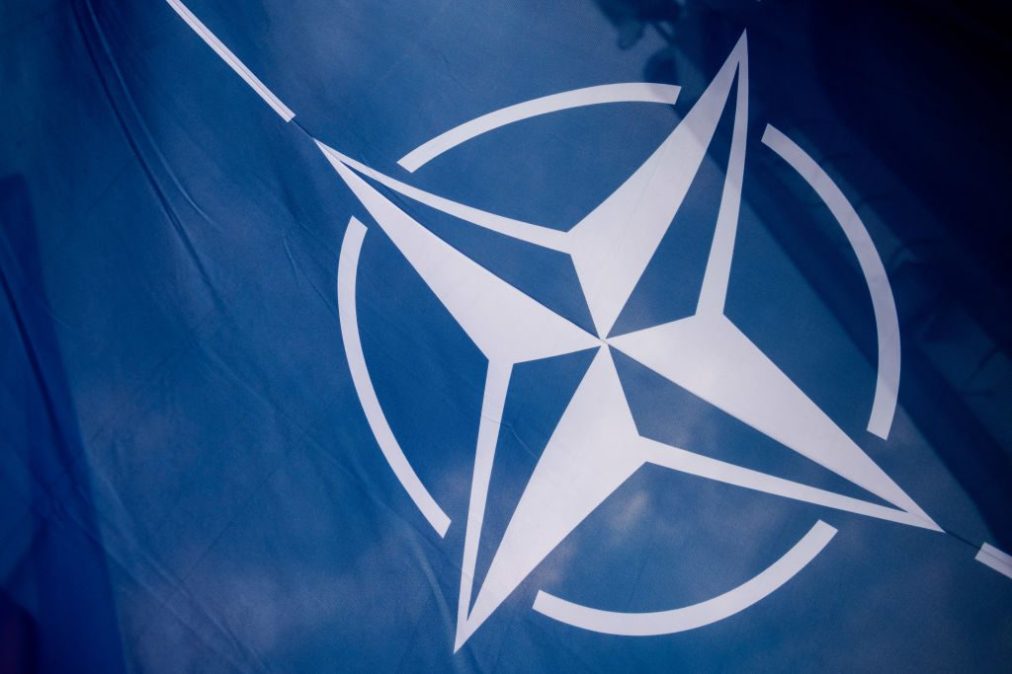NATO’s innovation accelerator begins search for its second cohort

The application window is now open for innovators from across the NATO alliance who wish to be chosen for the second cohort of its nascent effort to find and accelerate dual-use technologies that confront complex, contemporary and emerging security challenges.
NATO’s Defense Innovation Accelerator for the North Atlantic (DIANA) initiative launched in 2023, and 44 startups from 19 countries were subsequently tapped to form its inaugural cohort. Those participants submitted ideas in three key “challenge areas” — energy resilience, sensing and surveillance, and secure information sharing — and recently completed a six-month accelerator bootcamp program led at five sites in Europe and North America.
According to an announcement DIANA officials shared with DefenseScoop on Monday, those interested in applying for its second cohort are invited to submit proposals across five new challenge areas: “Energy and Power; Data and Information Security; Sensing and Surveillance — which build on the first three pilot challenges; as well as Human Health and Performance; and Critical Infrastructure and Logistics.”
With the deadline set for Aug. 9, organizations have six weeks to prepare and apply.
“We’re looking to select roughly about 15 companies per challenge area, which is about 75 and is proportionately the same as we did last year. It’s very exciting,” NATO-DIANA’s Chief Scientist Dr. Tien Pham told reporters last week.
In several virtual sessions that made up the DIANA media day on June 24, Pham and other officials involved previewed plans for this second challenge set, and spotlighted how the program is working to pave the way for near-term adaptation of high-tech commercial technologies to meet NATO’s evolving needs.
“So, what do we do? We provide technology developers, innovators, startups and companies with the resources, networks of end users, accelerators, test centers — you name it — and expertise, across the defense and security challenges to create a more peaceful and resilient ecosystem, so that we can address some of the challenges that we may face within the alliance in the future,” Pham explained.
Beyond an associated, expanding network of more than 200 accelerator sites and test centers in innovation clusters across the member states of the alliance, there’s also a regional office for DIANA in the United Kingdom and a regional hub in Estonia.
Plans are also in the works to open another office in Canada later this year.
NATO received around 1,300 applications in response to the first cohort’s challenge set, Pham said, noting that it came out to about 450 in each of the three areas.
Technologies developed by those 44 companies originally selected include but are not limited to innovative fuel cells, micro wind and hydro-turbines, secure optical communications and drone identification capabilities.
In response to questions from DefenseScoop on Monday, a senior NATO communications official confirmed that each of the startups received 100,000 euros in that first phase of DIANA that encompassed the six-month bootcamp that officially wrapped up last week.
Those in the first cohort who are selected for the next six-month phase will get an additional 300,000 euros. That effort, which is focused on “scaling up,” is now kicking off separately but simultaneously with this new challenge to underpin the next cohort.
“The numbers will be the same for the second set of challenges [as it comes together] next year. Companies can also apply for additional funding for testing,” the senior official said.
Alliance officials stated in the press release calling for applications to the next cohort that each of the five submission areas this year is aimed at addressing “a critical and complex challenge facing the world, and invites emerging and disruptive technology developments as part of a portfolio of potential solutions.”
“Proposals will be assessed against criteria such as the potential transformational impact, novelty, technological feasibility and commercial viability,” they wrote.
Notably, the alliance’s latest call for DIANA submissions comes a week before the 2024 NATO Summit that will be held in Washington.
Deputy Pentagon Press Secretary Sabrina Singh confirmed during a press briefing on Monday that Secretary of Defense Lloyd Austin and other Pentagon leadership are set to meet with their international counterparts at the summit, but she declined to share further details about their plans.



